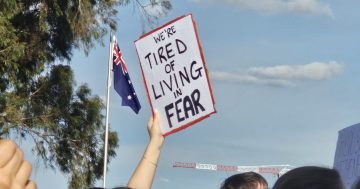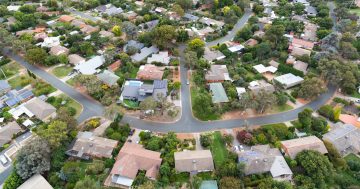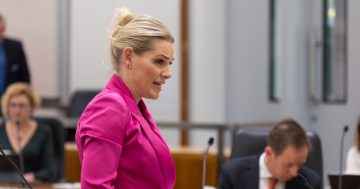
The ACT budget announcement of $21.4 million to address the territory’s domestic violence can only be welcomed, however there are questions.
I have written earlier about the lack of research into why domestic violence is so prevalent, acknowledging some reasons for its insidious presence across all sections of society – a fact recognised by the Chief Minister in his budget speech.
“Family violence does not discriminate,” Mr Barr said.
Why then has the government exempted low income households in ACT public housing from the flat $30 annual levy?
Is it suggested these people alone among community sections do not experience domestic violence? Is it a question of whether they can afford the impost – overlooking struggling families in private housing already paying other government levies? Is there a difficulty in collecting this charge because public housing tenants do not pay rates? Or is it political?
There are over 11,000 Housing ACT properties, including flats etc. It hardly seems fair to exclude a significant number of residents from paying a charge which the government itself has said is necessary because “all of us need to stand up and say enough is enough”.
There are another 20,000 general rental properties in Canberra for which landlords rather than tenants will pay the levy. Landlords may or may not pass the cost on to their tenants through rent rises, meaning many renters will not be contributing to the program either.
While the total funding amount is substantial – $21.4 million over four years – even when added to existing outlays for the service is not large compared with really big-ticket items like health, education and transport.
The charge therefore has been questioned as to why existing revenue could not fund it, thus involving everyone (including tenants) in any sacrifice which might be necessary by a $21.4 million deduction from elsewhere in the budget. Another levy – there are three already – is a sneaky discriminatory way to raise money.
The package itself is worrying. The name Safer Families is more hopeful than helpful and reading the reasons for the allocation of funds to over 14 different government and non-government organisations in the four year period seems bureaucratic. One doesn’t doubt the sincerity of those involved but the needs of the victims are paramount.
There does not appear to be many funds allocated to prevention: a residential behaviour change program for men who use or are at risk of using violence is mentioned ($964,000) but needs clarification. In the first instance it is too late and in the second how is the situation accurately identified?
Similarly money to allow police to better assist victims in applying for DVOs is commendable but there are many examples of orders being ignored with tragic consequences, so help in applying doesn’t serve much purpose.
While the government is to be applauded for addressing this problem even with already mentioned selective funding there remains again the failure to investigate the reasons for domestic violence and, at the other end of the line, firm action by the law against the perpetrators.
We have seen too many offenders allowed freedom with sometimes murderous results, a situation not covered in this initiative but which should be addressed with urgency.
Above, Andrew Barr announcing the levy in last week’s ACT Budget lock-up. Photo: Charlotte Harper





















